 Have you been feeling a bit dizzy lately? Does time feel like it’s been flying by faster than ever? Experiencing ringing in your ears? Seeing flashes of light or fleeting glimpses of things that aren’t there? If you’re not head-over heels in love, pregnant, or smokin’ da ganja, you may be going through what’s known as ascension symptoms. What are they, why are they happening, what do they mean, and will they ever go away? If you’d like answers to questions like these, the latest installment of Layman just might be the prescription you’ve been looking for.
Have you been feeling a bit dizzy lately? Does time feel like it’s been flying by faster than ever? Experiencing ringing in your ears? Seeing flashes of light or fleeting glimpses of things that aren’t there? If you’re not head-over heels in love, pregnant, or smokin’ da ganja, you may be going through what’s known as ascension symptoms. What are they, why are they happening, what do they mean, and will they ever go away? If you’d like answers to questions like these, the latest installment of Layman just might be the prescription you’ve been looking for.
 Have you seen them? They’re everywhere: in movies and TV shows, on ads and product packaging, in architecture, design, floor patterns, the Olympics, online, and even on the paper wrapped around hero sandwiches. They are honeycombs and hexagons, and they are taking over. Sure, design styles come and go, but why has this one seemed to have popped up so suddenly, become so incredibly prolific, and been so invisible to so many? Of course, now that you’re in the know, you’ll begin seeing them too (if you haven’t already). The question is why are they here, what do they mean, and why should you care?
Have you seen them? They’re everywhere: in movies and TV shows, on ads and product packaging, in architecture, design, floor patterns, the Olympics, online, and even on the paper wrapped around hero sandwiches. They are honeycombs and hexagons, and they are taking over. Sure, design styles come and go, but why has this one seemed to have popped up so suddenly, become so incredibly prolific, and been so invisible to so many? Of course, now that you’re in the know, you’ll begin seeing them too (if you haven’t already). The question is why are they here, what do they mean, and why should you care?
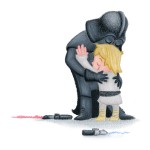 The first time I was given advice about the importance of forgiveness was at the most unlikely of places: an advertising school I was attending in Atlanta. The school had brought in speaker Joey Reiman—a very successful advertising executive who ran his own agency. Almost immediately, I could tell this man had a lot of wisdom, but it was towards the end of his presentation when something he said really resonated with me.
The first time I was given advice about the importance of forgiveness was at the most unlikely of places: an advertising school I was attending in Atlanta. The school had brought in speaker Joey Reiman—a very successful advertising executive who ran his own agency. Almost immediately, I could tell this man had a lot of wisdom, but it was towards the end of his presentation when something he said really resonated with me.
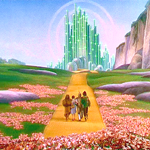 In a New York Press article from August, 2011, film producer and director Tommy Pallotta, said, “I am a fan of audience participation, but I also think audiences like to be told a story. There’s this thing video game designers call a ‘golden path’—there’s a definite way that the majority of people are going to experience the game, and the designers plot that. A lot of the interactivity in a video game is really just the illusion of interactivity. It’s about engaging the audience and giving at least the feeling of volition. But as the artist you have the sense that you are, in some way, controlling it, blending the craft of storytelling with the illusion of agency.” In other words, in a game you think you are controlling the action, but really it’s already been pre-programmed. Kind of like what we think of as destiny. In fact, maybe that’s exactly what destiny is: the path we are meant to take in order to have the most fulfilling experience.
In a New York Press article from August, 2011, film producer and director Tommy Pallotta, said, “I am a fan of audience participation, but I also think audiences like to be told a story. There’s this thing video game designers call a ‘golden path’—there’s a definite way that the majority of people are going to experience the game, and the designers plot that. A lot of the interactivity in a video game is really just the illusion of interactivity. It’s about engaging the audience and giving at least the feeling of volition. But as the artist you have the sense that you are, in some way, controlling it, blending the craft of storytelling with the illusion of agency.” In other words, in a game you think you are controlling the action, but really it’s already been pre-programmed. Kind of like what we think of as destiny. In fact, maybe that’s exactly what destiny is: the path we are meant to take in order to have the most fulfilling experience.
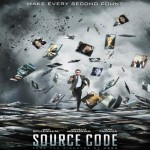 As mentioned in last quarter’s column, there have been a lot of “life-as-illusion” themed movies coming out lately. While I suspect that the success of Avatar and Lost are partly responsible for this trend, I think people’s fascination with 2012, drastic world changes, and a surge in our search for meaning are also fueling the recent string of films about alternate realities and simulated worlds. When airplanes are crashing into buildings, cities are submerged underwater, the Middle East is revolting, and the world economy is collapsing, real life almost seems more fantastical than our dreams. Jon Stewart summed it up perfectly at the 2008 Academy Awards: “Normally, when you see a black man or a woman president, an asteroid is about to hit the Statue of Liberty.” Yes, we are now officially living in the future, and we all know what kind of stuff happens in the future—exactly the kind of stuff that’s happening right now. But at least, thanks to Hollywood, we’ve been warned. And Hollywood’s heads up may even go much deeper than prophesies of events to come. They may help explain the reality we all find ourselves in.
As mentioned in last quarter’s column, there have been a lot of “life-as-illusion” themed movies coming out lately. While I suspect that the success of Avatar and Lost are partly responsible for this trend, I think people’s fascination with 2012, drastic world changes, and a surge in our search for meaning are also fueling the recent string of films about alternate realities and simulated worlds. When airplanes are crashing into buildings, cities are submerged underwater, the Middle East is revolting, and the world economy is collapsing, real life almost seems more fantastical than our dreams. Jon Stewart summed it up perfectly at the 2008 Academy Awards: “Normally, when you see a black man or a woman president, an asteroid is about to hit the Statue of Liberty.” Yes, we are now officially living in the future, and we all know what kind of stuff happens in the future—exactly the kind of stuff that’s happening right now. But at least, thanks to Hollywood, we’ve been warned. And Hollywood’s heads up may even go much deeper than prophesies of events to come. They may help explain the reality we all find ourselves in.
 There have been a lot of “life-as-illusion” themed movies coming out lately. We’ve had Avatar, Inception, and TRON: Legacy, and this month alone there’s The Adjustment Bureau, Limitless, Sucker Punch and Source Code. All these films share themes of alternate realities, questions about what is reality, and insight into powers that might be manipulating the reality we live in. While I hope to discuss the most recent batch of these films in an upcoming column, for now I’d like to bring up one that slipped past the radar of many moviegoers. This film actually gave me goose bumps when it revealed an angle that I’ve only recently adopted, and have never before seen in any other movie. That film is Disney’s Tangled.
There have been a lot of “life-as-illusion” themed movies coming out lately. We’ve had Avatar, Inception, and TRON: Legacy, and this month alone there’s The Adjustment Bureau, Limitless, Sucker Punch and Source Code. All these films share themes of alternate realities, questions about what is reality, and insight into powers that might be manipulating the reality we live in. While I hope to discuss the most recent batch of these films in an upcoming column, for now I’d like to bring up one that slipped past the radar of many moviegoers. This film actually gave me goose bumps when it revealed an angle that I’ve only recently adopted, and have never before seen in any other movie. That film is Disney’s Tangled.
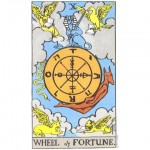 Throughout my travels this summer, I kept hearing similar themes coming up again and again: the idea that the world seems to be broken and in need of repair, that the system no longer works, that the rules have drastically changed since we were kids, that there seems to be a gap between where we are and where we want to go, both as a society, and in our individual lives. Admittedly, these themes were most often being repeated by me, but others weren’t giving me the kind of baffled looks I used to get when I spoke my mind. No, most of the time they agreed with me and shared their frustrations about how hard things seem to be these days. Initially, I had no answers. But then, a solution came to me from a most unexpected source—the TV show, Lost. Actually, the source wasn’t the unexpected part since I’d been getting wisdom from Lost for years and had even written a book about it. What was unexpected was that the show had already concluded three months earlier.
Throughout my travels this summer, I kept hearing similar themes coming up again and again: the idea that the world seems to be broken and in need of repair, that the system no longer works, that the rules have drastically changed since we were kids, that there seems to be a gap between where we are and where we want to go, both as a society, and in our individual lives. Admittedly, these themes were most often being repeated by me, but others weren’t giving me the kind of baffled looks I used to get when I spoke my mind. No, most of the time they agreed with me and shared their frustrations about how hard things seem to be these days. Initially, I had no answers. But then, a solution came to me from a most unexpected source—the TV show, Lost. Actually, the source wasn’t the unexpected part since I’d been getting wisdom from Lost for years and had even written a book about it. What was unexpected was that the show had already concluded three months earlier.
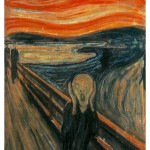 On the evening of October 6th, 2009, I awoke from a deep sleep with the sensation that there was a bright light shining on me from behind my head. Not only could I see this light, I could feel it and I soon became very hot. It felt almost as though the light were cooking me, but I didn’t want to move—or maybe, I couldn’t move. Eventually, the light faded and I fell back to sleep. So, what was it? Was it all in my mind? Was I getting some kind of program download or vibration upgrade? Was it a celestial connection? An angel communication? An alien probe? I wasn’t sure, but my forehead was very red the next morning and soon began peeling as though I’d gotten a sunburn. But this was October, and I hadn’t been out in sun for any length of time. Completely baffled, I decided to seek the help of my trusty mentor and longest childhood friend…television.
On the evening of October 6th, 2009, I awoke from a deep sleep with the sensation that there was a bright light shining on me from behind my head. Not only could I see this light, I could feel it and I soon became very hot. It felt almost as though the light were cooking me, but I didn’t want to move—or maybe, I couldn’t move. Eventually, the light faded and I fell back to sleep. So, what was it? Was it all in my mind? Was I getting some kind of program download or vibration upgrade? Was it a celestial connection? An angel communication? An alien probe? I wasn’t sure, but my forehead was very red the next morning and soon began peeling as though I’d gotten a sunburn. But this was October, and I hadn’t been out in sun for any length of time. Completely baffled, I decided to seek the help of my trusty mentor and longest childhood friend…television.
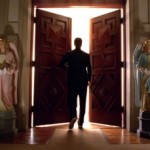 Lost is dead. Long live Lost. And so it ends, in much the same way it began—with a close-up of Jack’s eye, staring straight up past the tall stalks of bamboo that circled the sky above. This time however, that eye would close, and with it, our six-season journey that took us right back to where we started—with questions about a mysterious show that seemed to parallel the mysteries of life. For some, the journey was far more compelling than the destination. For others, it was the perfect resolution and they can walk away feeling fulfilled. Whatever you thought about the conclusion, the one thing most viewers can agree on is that the show challenged us to think in ways we might not have otherwise. In short, Lost was a real trip. And what a long, strange trip it’s been.
Lost is dead. Long live Lost. And so it ends, in much the same way it began—with a close-up of Jack’s eye, staring straight up past the tall stalks of bamboo that circled the sky above. This time however, that eye would close, and with it, our six-season journey that took us right back to where we started—with questions about a mysterious show that seemed to parallel the mysteries of life. For some, the journey was far more compelling than the destination. For others, it was the perfect resolution and they can walk away feeling fulfilled. Whatever you thought about the conclusion, the one thing most viewers can agree on is that the show challenged us to think in ways we might not have otherwise. In short, Lost was a real trip. And what a long, strange trip it’s been.
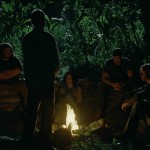 In the penultimate episode of Lost, “What They Died For,” Jacob tells the surviving Losties why he chose them as candidates: “I chose you because you were all alone. You were all looking for something that you couldn’t find out there. I chose you because you needed this place as much as it needed you.” This explanation really resonated with me, on one hand because it provided a mythologically sound answer to the main question I’ve always had about Lost: why do all these characters have major issues? And having that answer provided the other reason I really liked the explanation: I immediately understood that while Jacob was addressing the remaining candidates, he was really speaking to us.
In the penultimate episode of Lost, “What They Died For,” Jacob tells the surviving Losties why he chose them as candidates: “I chose you because you were all alone. You were all looking for something that you couldn’t find out there. I chose you because you needed this place as much as it needed you.” This explanation really resonated with me, on one hand because it provided a mythologically sound answer to the main question I’ve always had about Lost: why do all these characters have major issues? And having that answer provided the other reason I really liked the explanation: I immediately understood that while Jacob was addressing the remaining candidates, he was really speaking to us.
 Have you been feeling a bit dizzy lately? Does time feel like it’s been flying by faster than ever? Experiencing ringing in your ears? Seeing flashes of light or fleeting glimpses of things that aren’t there? If you’re not head-over heels in love, pregnant, or smokin’ da ganja, you may be going through what’s known as ascension symptoms. What are they, why are they happening, what do they mean, and will they ever go away? If you’d like answers to questions like these, the latest installment of Layman just might be the prescription you’ve been looking for.
Have you been feeling a bit dizzy lately? Does time feel like it’s been flying by faster than ever? Experiencing ringing in your ears? Seeing flashes of light or fleeting glimpses of things that aren’t there? If you’re not head-over heels in love, pregnant, or smokin’ da ganja, you may be going through what’s known as ascension symptoms. What are they, why are they happening, what do they mean, and will they ever go away? If you’d like answers to questions like these, the latest installment of Layman just might be the prescription you’ve been looking for.









